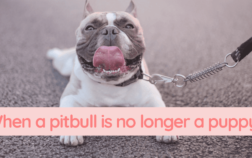Being a dog owner you are definitely searching for tips for relieving dog constipation that can have a significant impact on a dog’s health and well-being. Just like humans, dogs need to have regular bowel movements to eliminate waste and maintain a healthy digestive system. When a dog is constipated, it means that they are having difficulty passing stool or are not having bowel movements as frequently as they should. This can lead to discomfort, pain, and even more serious health problems if left untreated.
Understanding Dog Constipation: Causes and Symptoms
Dog constipation is defined as the inability to pass stool or having infrequent bowel movements. There are several common causes of constipation in dogs, including dietary changes, lack of fiber in the diet, dehydration, lack of exercise, certain medications, and underlying medical conditions such as intestinal blockages or tumors.
Symptoms of constipation in dogs can vary but may include straining to defecate, passing small or hard stools, decreased appetite, lethargy, abdominal discomfort or bloating, and vomiting. If you notice any of these symptoms in your dog, it is important to address the issue promptly to prevent further complications.
The Importance of Regular Bowel Movements for Dogs
Regular bowel movements are essential for a dog’s overall health and well-being. When waste builds up in the colon and is not eliminated regularly, it can lead to a variety of problems. The colon absorbs water from the stool as it passes through, and if the stool remains in the colon for too long, it can become dry and hard, making it even more difficult to pass.
Prolonged constipation can also put pressure on the surrounding organs and tissues, leading to discomfort and pain for your dog. In severe cases, constipation can cause the colon to become impacted or blocked, which may require medical intervention to resolve.
Dietary Changes to Help Relieve Dog Constipation
Making dietary changes can be an effective way to relieve and prevent constipation in dogs. It is important to ensure that your dog’s diet includes enough fiber, as this helps to add bulk to the stool and promote regular bowel movements. Foods that are high in fiber include pumpkin, sweet potatoes, green beans, and certain types of grains such as brown rice or oatmeal.
On the other hand, it is important to avoid feeding your dog foods that can contribute to constipation. These include foods that are high in fat or low in fiber, such as processed meats, dairy products, and certain types of commercial dog treats. Additionally, it is important to ensure that your dog has access to fresh water at all times, as dehydration can contribute to constipation.
When making dietary changes for your dog, it is important to do so gradually to avoid causing digestive upset. Start by introducing small amounts of the new food and gradually increase the amount over a period of several days. This will give your dog’s digestive system time to adjust and minimize the risk of constipation or other digestive issues.
Hydration and Exercise: Simple Remedies for Dog Constipation
In addition to dietary changes, ensuring that your dog stays hydrated and gets regular exercise can also help prevent and relieve constipation. Adequate hydration is essential for maintaining healthy bowel movements, as it helps to soften the stool and make it easier to pass.
Make sure that your dog has access to fresh water at all times and encourage them to drink regularly. If your dog is not drinking enough water, you can try adding a small amount of low-sodium chicken broth or water from canned tuna to their water bowl to entice them to drink more.
Regular exercise is also important for maintaining a healthy digestive system. Exercise helps to stimulate the muscles in the intestines, promoting regular bowel movements. Take your dog for daily walks or engage in play sessions that involve running or jumping to help keep their digestive system functioning properly.
Natural Remedies for Dog Constipation: Pumpkin and Probiotics

Two natural remedies that can be effective in relieving constipation in dogs are pumpkin and probiotics. Pumpkin is high in fiber and can help add bulk to the stool, making it easier to pass. It also contains natural enzymes that can aid in digestion.
You can feed your dog plain, canned pumpkin or cooked, mashed pumpkin as a dietary supplement. Start with a small amount, such as a teaspoon or two, and gradually increase the amount if needed. Be sure to use plain pumpkin without any added sugars or spices.
Probiotics are beneficial bacteria that can help promote a healthy balance of gut flora and improve digestion. They can be especially helpful if your dog has recently been on antibiotics, as antibiotics can disrupt the natural balance of bacteria in the gut.
There are several probiotic supplements available specifically for dogs, or you can ask your veterinarian for recommendations. Probiotics can be given in the form of a powder or capsule, and the dosage will depend on your dog’s size and specific needs.
Medication and Supplements for Dog Constipation
In some cases, medication or supplements may be necessary to relieve constipation in dogs. There are several types of medications that can help stimulate bowel movements or soften the stool, including laxatives, stool softeners, and enemas.
It is important to note that these medications should only be used under the guidance of a veterinarian, as they can have side effects and may not be appropriate for all dogs. Your veterinarian will be able to determine the underlying cause of your dog’s constipation and recommend the most appropriate treatment options.
There are also several over-the-counter supplements available that can help promote regular bowel movements in dogs. These supplements often contain ingredients such as psyllium husk, which is a natural source of fiber, or herbs such as slippery elm or marshmallow root, which can help soothe the digestive tract.
Again, it is important to consult with your veterinarian before starting any new medication or supplement for your dog, as they will be able to provide guidance on the appropriate dosage and potential interactions with other medications your dog may be taking.
When to Seek Veterinary Help for Dog Constipation
While many cases of constipation in dogs can be resolved with dietary changes and home remedies, there are times when it is necessary to seek veterinary help. If your dog’s constipation persists for more than a day or two despite your efforts to relieve it, or if your dog is showing signs of distress or pain, it is important to consult with a veterinarian.
Your veterinarian will be able to perform a thorough examination and may recommend additional tests such as blood work or imaging to determine the underlying cause of your dog’s constipation. They may also be able to provide more targeted treatment options if necessary.
Preventing Dog Constipation: Tips for Maintaining Bowel Regularity
Preventing constipation in dogs is often easier than treating it once it occurs. There are several steps you can take to help maintain bowel regularity in your dog:
1. Provide a balanced diet: Make sure that your dog’s diet includes enough fiber and is nutritionally balanced. Avoid feeding foods that are high in fat or low in fiber, as these can contribute to constipation.
2. Ensure adequate hydration: Make sure that your dog has access to fresh water at all times and encourage them to drink regularly. If necessary, add low-sodium chicken broth or water from canned tuna to their water bowl to entice them to drink more.
3. Promote regular exercise: Regular exercise helps stimulate the muscles in the intestines and promotes healthy bowel movements. Take your dog for daily walks or engage in play sessions that involve running or jumping.
4. Avoid sudden dietary changes: When making changes to your dog’s diet, do so gradually to avoid causing digestive upset. Start by introducing small amounts of the new food and gradually increase the amount over a period of several days.
5. Regular veterinary check-ups: Routine veterinary check-ups are important for maintaining your dog’s overall health and can help identify and address any potential issues before they become more serious.
The Dangers of Ignoring Dog Constipation: Complications and Risks
Ignoring constipation in dogs can lead to a variety of complications and risks. Prolonged constipation can cause the colon to become impacted or blocked, which may require medical intervention to resolve. This can be a painful and potentially life-threatening condition.
In severe cases, constipation can also lead to the development of megacolon, a condition in which the colon becomes enlarged and loses its ability to contract and move stool through the digestive system. Megacolon can be difficult to treat and may require surgery to correct.
Additionally, if constipation is caused by an underlying medical condition such as an intestinal blockage or tumor, ignoring the issue can allow the condition to progress and potentially cause further damage or complications.
Caring for Senior Dogs with Chronic Constipation: Special Considerations and Tips
Senior dogs are more prone to constipation due to age-related changes in their digestive system. They may have decreased muscle tone in the intestines, slower digestion, or other age-related health issues that can contribute to constipation.
If you have a senior dog with chronic constipation, there are several special considerations and tips to keep in mind:
1. Consult with your veterinarian: It is important to work closely with your veterinarian to manage chronic constipation in senior dogs. They may recommend additional tests or treatments to address any underlying health issues contributing to the constipation.
2. Adjust diet and supplements: Senior dogs may require dietary adjustments or additional supplements to help manage chronic constipation. Your veterinarian can provide guidance on the most appropriate options for your dog’s specific needs.
3. Increase exercise: Regular exercise is important for maintaining a healthy digestive system in senior dogs. However, it is important to tailor the exercise to your dog’s age and physical condition. Gentle walks or low-impact activities may be more appropriate for senior dogs.
4. Monitor hydration: Senior dogs may be more prone to dehydration, which can contribute to constipation. Make sure that your dog has access to fresh water at all times and encourage them to drink regularly.
Dog constipation is a common issue that can have a significant impact on a dog’s health and well-being. It is important to understand the causes and symptoms of constipation in dogs and take steps to prevent and relieve it when necessary. Dietary changes, hydration, exercise, natural remedies, and medication or supplements can all be effective in managing constipation in dogs. However, it is important to consult with a veterinarian if your dog’s constipation persists or if they are showing signs of distress or pain. With proper care and attention, constipation in dogs can be effectively managed and prevented, ensuring a healthy digestive system and overall well-being.
If your dog is constipated, it’s important to understand the potential causes and remedies to help them find relief. In a related article on PetsGuyver.com, you can learn more about this common issue and how to address it effectively. From dietary adjustments to natural remedies, the article provides valuable insights and tips for dealing with canine constipation. To checkout more useful articles, click here: https://petsguyver.com/blog/.
FAQs
What is constipation in dogs?
Constipation in dogs is a condition where the dog has difficulty passing stool or has infrequent bowel movements. It can be caused by various factors such as dehydration, lack of exercise, or a diet low in fiber.
What are the symptoms of constipation in dogs?
The symptoms of constipation in dogs include straining to defecate, passing small amounts of dry, hard stool, lethargy, loss of appetite, and vomiting.
What can cause constipation in dogs?
Constipation in dogs can be caused by various factors such as dehydration, lack of exercise, a diet low in fiber, ingestion of foreign objects, certain medications, or underlying medical conditions such as hypothyroidism or megacolon.
How can I prevent constipation in my dog?
To prevent constipation in dogs, ensure that your dog has access to clean water at all times, provide a balanced diet that is high in fiber, and ensure that your dog gets enough exercise. Avoid giving your dog bones or other indigestible objects that can cause blockages.
What can I do if my dog is constipated?
If your dog is constipated, you can try increasing their water intake, feeding them a high-fiber diet, or adding a small amount of canned pumpkin to their food. If the constipation persists or is accompanied by other symptoms, it is best to consult a veterinarian. Do not give your dog human laxatives without consulting a veterinarian first.



